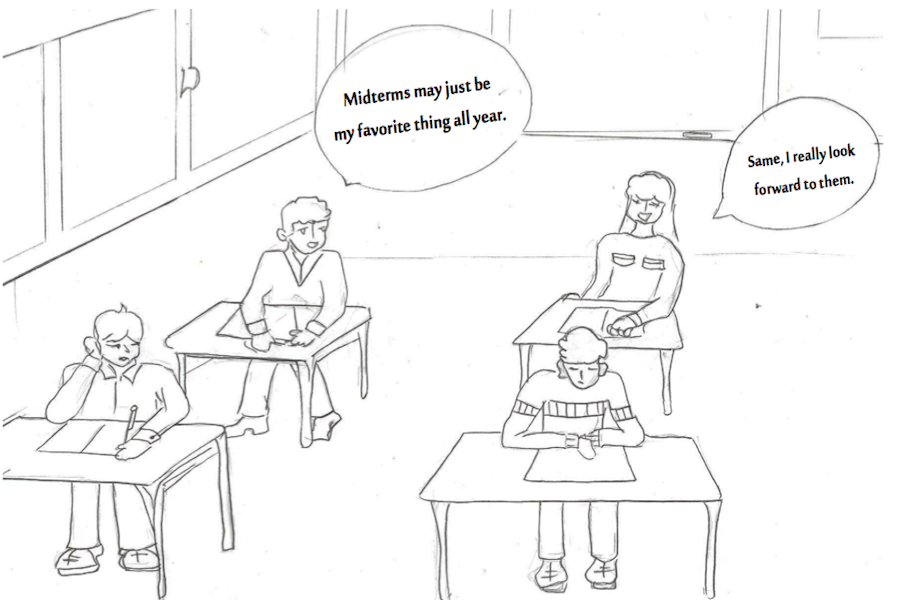Fact: nobody likes midterms or finals.
They’re stressful. The stakes are crazy high. The only bright side for Staples students during this hellish week is the shortened day.
A traditional midterm or final exam consists of a multiple choice section and maybe an essay, or in the case of math and science classes, a free-response section. But in increasing numbers, teachers and students are forgoing the traditional type of exam, and trading in Scantrons for an alternative assignment, like a presentation or a project.
“I hate when teachers cancel exams! I always perform better in a stressful test environment,” said no one, ever.
Midterm week is crazy. Students have up to eight exams in one week. It’s stressful enough to have one test per day, let alone multiple, all of which are worth a big fat percentage of your final grade. Just thinking about it is enough to make your head spin.
That kind of pressure takes a toll. Not surprisingly, stress affects your memory. According to the Centre for Studies on Human Stress, when you divide your attention between multiple tasks, your brain finds it hard to encode everything at the same time.
No high school student would be surprised to hear that fact. So between memorizing parts of the cell for Biology, hundreds of vocab words in English or some foreign language, or every important date in the history of the United States of America, obviously there are going to be gaping holes.
Of course, some classes—like math—may lend themselves better to the traditional exam.
But in a class like English, a great student can easily be screwed by the system. You might be awesome at literary analysis, but even the most insightful reader can get frazzled when they only have 40 minutes to express all their ideas in a concise, well-organized essay. Isn’t revision the whole point of being a good writer?
An alternative form to an exam offers an opportunity for students to showcase their knowledge in a less stressful situation. After all, Staples is supposed to be all about preparing us for the real world.
In what real-world situation will you ever be forced, on the spot, to fill in a map with every capital city in the Middle East?
What really matters is that students can prove that they’ve mastered the course material in a meaningful way, not proving that they can rattle off information at the drop of a hat.
That’s what “Are You Smarter Than a 5th Grader” is for.














































